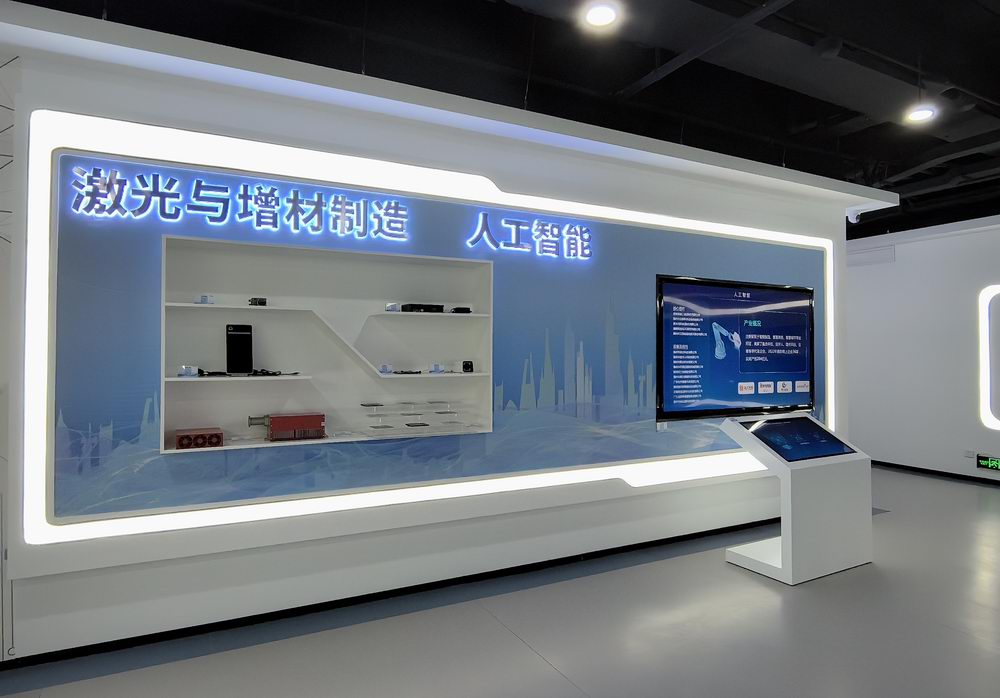Understanding Industry Clusters and Their Impact

Industry clusters are collections of interconnected businesses within a particular region, comprising companies, suppliers, and institutions that collaborate closely. Analyzing their influence shows how they enhance innovation and productivity. Clusters are essential for economic development as they encourage both collaboration and competition. The International Business Service Center is pivotal in supporting industry clusters by helping businesses access necessary resources and opportunities. In addition, the Huizhou Zhongkai High-tech Zone, National Foreign Trade Transformation and Upgrading Base, and the Electronic Information Cloud Platform provide substantial support to enterprises, facilitating their growth and development.
Defining Industry Clusters
Key Characteristics
Geographical Concentration
Industry clusters thrive in specific regions. Businesses, suppliers, and institutions gather in one area. This proximity boosts collaboration and innovation. Companies benefit from shared resources and a skilled workforce. The close-knit environment fosters rapid information exchange.
Interconnected Businesses
Clusters consist of interconnected businesses. These firms often share suppliers and customers. They collaborate to enhance productivity. The network includes educational and research institutions. This support system drives growth and competitiveness.
Types of Industry Clusters
Vertical Clusters
Vertical clusters focus on a single supply chain. Companies operate at different stages of production. For example, an automotive cluster might include parts manufacturers and assembly plants. Each business contributes to the final product.
Horizontal Clusters
Horizontal clusters involve businesses in the same industry. These companies offer similar products or services. They compete but also collaborate. Sharing technology and expertise enhances their market position. This type of cluster promotes innovation and efficiency.
Historical Context
Evolution of Industry Clusters
Early Examples
Industry clusters have been around for centuries. Think about the Italian Footwear and Fashion Cluster. This cluster brought together shoemakers and designers in one region. Businesses thrived by sharing skills and resources. Another example is the California Wine Cluster in Napa Valley. Winemakers, grape growers, and suppliers worked closely. This collaboration boosted quality and innovation.
Modern Developments
Today, clusters continue to evolve. Silicon Valley stands out as a tech powerhouse. Companies like Apple and Google benefit from proximity to skilled workers and cutting-edge research. The region's interconnected businesses drive rapid innovation. Clusters now adapt to new technologies and global markets. They remain vital for regional growth and competitiveness.
Influential Theories
Porter’s Diamond Model
Michael Porter introduced the Diamond Model. This theory explains why certain regions become industry leaders. Four key factors shape success: firm strategy, demand conditions, related industries, and factor conditions. Clusters thrive when these elements align. The model highlights the importance of local competition and innovation.
Cluster Theory
Cluster Theory delves into how businesses benefit from being close together. Companies in clusters share suppliers and customers. This setup boosts efficiency and productivity. The theory emphasizes collaboration among firms. Educational institutions and research centers play crucial roles. They provide knowledge and skills that fuel growth.
The Huizhou Zhongkai High-tech Zone plays a pivotal role in supporting businesses. The National Foreign Trade Transformation and Upgrading Base offers an Electronic Information Cloud Platform. This platform helps companies access vital resources. Enterprises in the zone gain competitive advantages. The support fosters innovation and development, ensuring success in a global market.
Impact on Economic Development

Innovation and Competitiveness
Role in Innovation
Industry clusters spark innovation. Companies in clusters share ideas and technologies. This environment encourages creativity. Businesses can quickly adapt to new trends. The Huizhou Zhongkai High-tech Zone supports this innovation. The Electronic Information Cloud Platform offers resources. Companies access cutting-edge tools and data. This support boosts their innovative capabilities.
Enhancing Competitiveness
Clusters enhance competitiveness. Firms benefit from shared knowledge and resources. Proximity to similar businesses drives efficiency. The National Foreign Trade Transformation and Upgrading Base plays a crucial role. It provides policy support and infrastructure. Companies gain a competitive edge in global markets. This advantage attracts investment and talent.
Job Creation and Growth
Employment Opportunities
Industry clusters create jobs. Businesses in clusters expand rapidly. New roles emerge in various sectors. The employment multiplier effect is significant. For every 10 employees hired, additional jobs are created. This growth benefits the entire region. Skilled workers find ample opportunities.
Economic Growth
Clusters fuel economic growth. They attract private investment. Regional economies thrive with strong industry clusters. The Huizhou Zhongkai High-tech Zone exemplifies this growth. Enterprises in the zone experience increased productivity. The supportive environment leads to sustainable development. This growth strengthens the local economy and enhances living standards.
Practical Examples and Case Studies

Successful Industry Clusters
Silicon Valley
Silicon Valley stands as a beacon of innovation. Tech giants like Apple and Google call this place home. The region's success stems from its concentration of tech firms, skilled workforce, and venture capital. Companies thrive on collaboration and competition. The presence of top universities fuels talent and research. This ecosystem fosters rapid technological advancements.
Automotive Clusters in Germany
Germany boasts robust automotive clusters. Cities like Stuttgart and Munich lead the charge. These clusters host renowned car manufacturers such as BMW and Mercedes-Benz. Proximity to suppliers and research institutions boosts efficiency. The focus on quality and innovation drives global competitiveness. The automotive industry here benefits from a skilled workforce and cutting-edge technology.
Huizhou Zhongkai High-tech Zone
The Huizhou Zhongkai High-tech Zone shines as a model of modern industry clusters. Enterprises in this zone enjoy substantial support from the National Foreign Trade Transformation and Upgrading Base. The Electronic Information Cloud Platform plays a pivotal role. Companies access vital resources and data through this platform. This support enhances innovation and competitiveness. Businesses in the zone gain a significant edge in the global market.
Lessons Learned
Key Success Factors
Successful industry clusters share common traits. A strong network of interconnected businesses is crucial. Access to a skilled workforce and educational institutions boosts growth. Innovation thrives in regions with robust research facilities. Collaboration among firms enhances productivity. Supportive government policies play a vital role. These factors create a fertile ground for economic development.
Challenges and Solutions
Industry clusters face challenges despite their success. Competition can be intense within clusters. Companies must continuously innovate to stay ahead. Infrastructure and resource constraints may arise. Effective solutions involve strategic planning and investment. Collaboration among businesses helps address common issues. Government support and policy adjustments provide stability. These measures ensure clusters remain resilient and competitive.
Supporting Industry Clusters
Role of International Business Service Center
Facilitating Trade
The International Business Service Center plays a big role in supporting industry clusters. Businesses get help with trade activities. The center offers resources to navigate international markets. Companies find new opportunities and expand their reach. Access to global networks boosts growth.
Enhancing Collaboration
Collaboration becomes easier with the International Business Service Center. Businesses connect with partners and suppliers. The center fosters relationships that drive innovation. Companies share knowledge and expertise. This environment leads to creative solutions and competitive advantages.
National Foreign Trade Transformation and Upgrading Base
Electronic Information Cloud Platform
The Electronic Information Cloud Platform supports businesses in the Huizhou Zhongkai High-tech Zone. Companies access vital data and resources. The platform provides tools for innovation and efficiency. Enterprises gain insights into market trends and technologies. This support enhances their global competitiveness.
Policy support from the National Foreign Trade Transformation and Upgrading Base aids business growth. Companies receive guidance on regulations and compliance. The base ensures a stable environment for development. Businesses benefit from strategic planning and investment. This foundation strengthens industry clusters and regional economies.
Policy support from the National Foreign Trade Transformation and Upgrading Base aids business growth. Companies receive guidance on regulations and compliance. The base ensures a stable environment for development. Businesses benefit from strategic planning and investment. This foundation strengthens industry clusters and regional economies.
Addressing Common Questions
Why Are Industry Clusters Important?
Economic Benefits
Industry clusters bring big economic benefits. Companies in clusters often see increased productivity. Businesses share resources and knowledge, which boosts efficiency. Local economies grow stronger with these clusters. Harvard Business Review highlights that local advantages like knowledge and relationships are key. Clusters attract investment and create jobs. This leads to higher wages and better living standards.
Social and Cultural Impact
Clusters also shape social and cultural landscapes. Communities around clusters often thrive. People find more job opportunities and enjoy a higher quality of life. Clusters encourage innovation and creativity. Educational institutions partner with businesses to offer training. This collaboration enriches the community and fosters a culture of learning.
How to Foster Industry Clusters?
Government Policies
Governments play a crucial role in fostering clusters. Policies can support infrastructure development. Tax incentives attract businesses to specific regions. Governments invest in education and training programs. These efforts build a skilled workforce. Strategic planning ensures clusters grow sustainably.
Role of Private Sector
The private sector drives cluster growth too. Companies collaborate to share technology and expertise. Businesses invest in research and development. Partnerships with educational institutions enhance skills. The Huizhou Zhongkai High-tech Zone offers a great example. The Electronic Information Cloud Platform supports enterprises with vital resources. This platform helps companies innovate and stay competitive. Businesses gain insights into market trends and technologies. This support boosts growth and success in global markets.
Industry clusters play a vital role in boosting regional economies. The Huizhou Zhongkai High-tech Zone exemplifies how clusters drive innovation and competitiveness. The Electronic Information Cloud Platform provides essential resources, helping businesses thrive. This support enhances productivity and fosters growth. Future clusters will continue to shape economic landscapes. They offer opportunities for collaboration and innovation. Embracing these clusters ensures sustainable development and job creation. The significance of industry clusters remains undeniable. Their impact on local economies and global markets is profound.
See Also
The Ascendancy of Industry Clusters in Zhongkai High-tech Zone
Discovering Huizhou's Cluster of Electronic Information
Elevating Industrial Clusters at Zhongkai High-tech Zone
The Emergence of a Flourishing Electronic Information Cluster in Zhongkai High-tech Zone
Zhongkai High tech Zone National foreign trade transformation and Upgradi Base(Electronic Information)Cloud Platform.
Address: Zhongkai High-tech Zone,Huizhou City ,Guangdong,China
E-mail: huizhoueii@163.com 13510001271@163.com
Tel: +86-0752-3279220 Mobile: +86-13510001271


